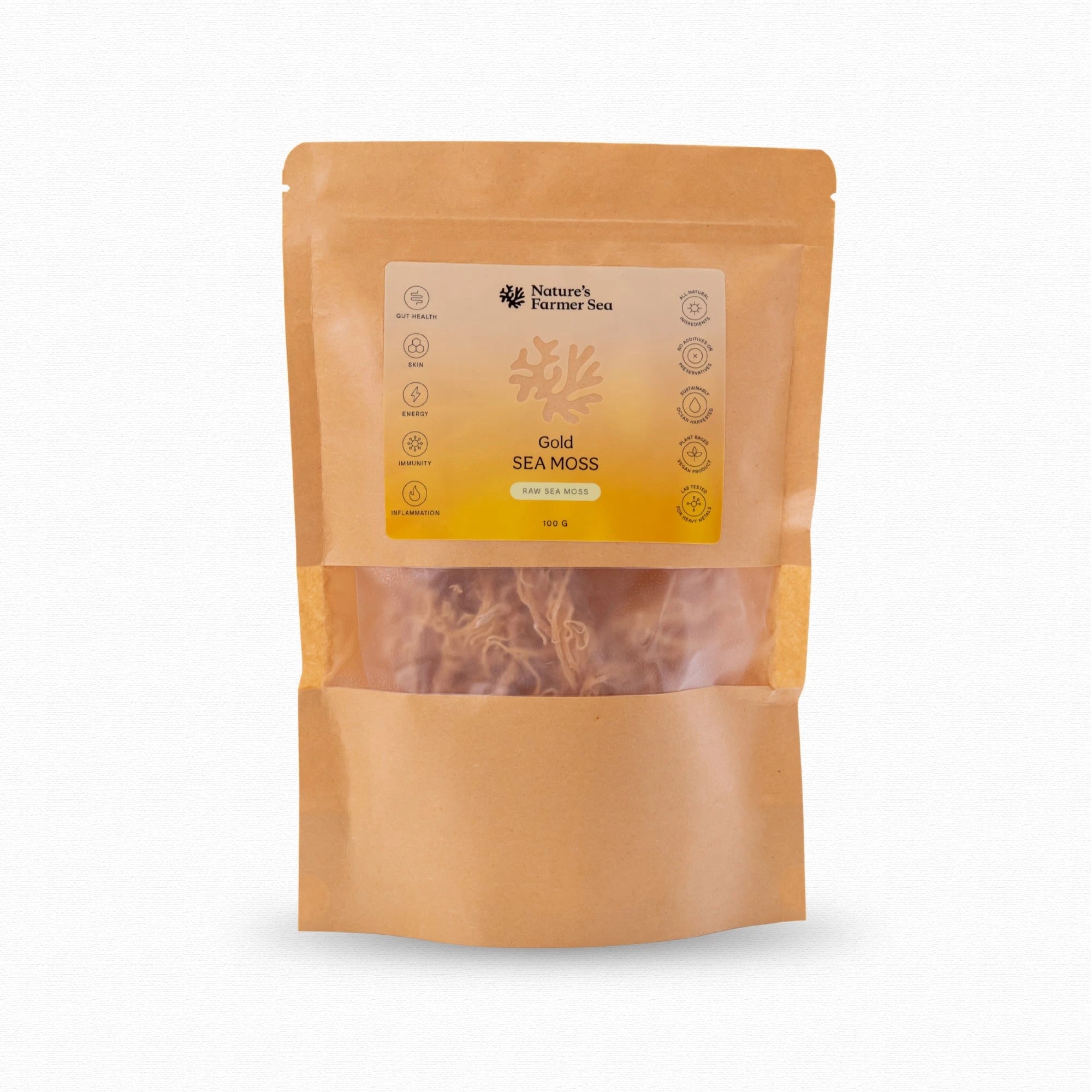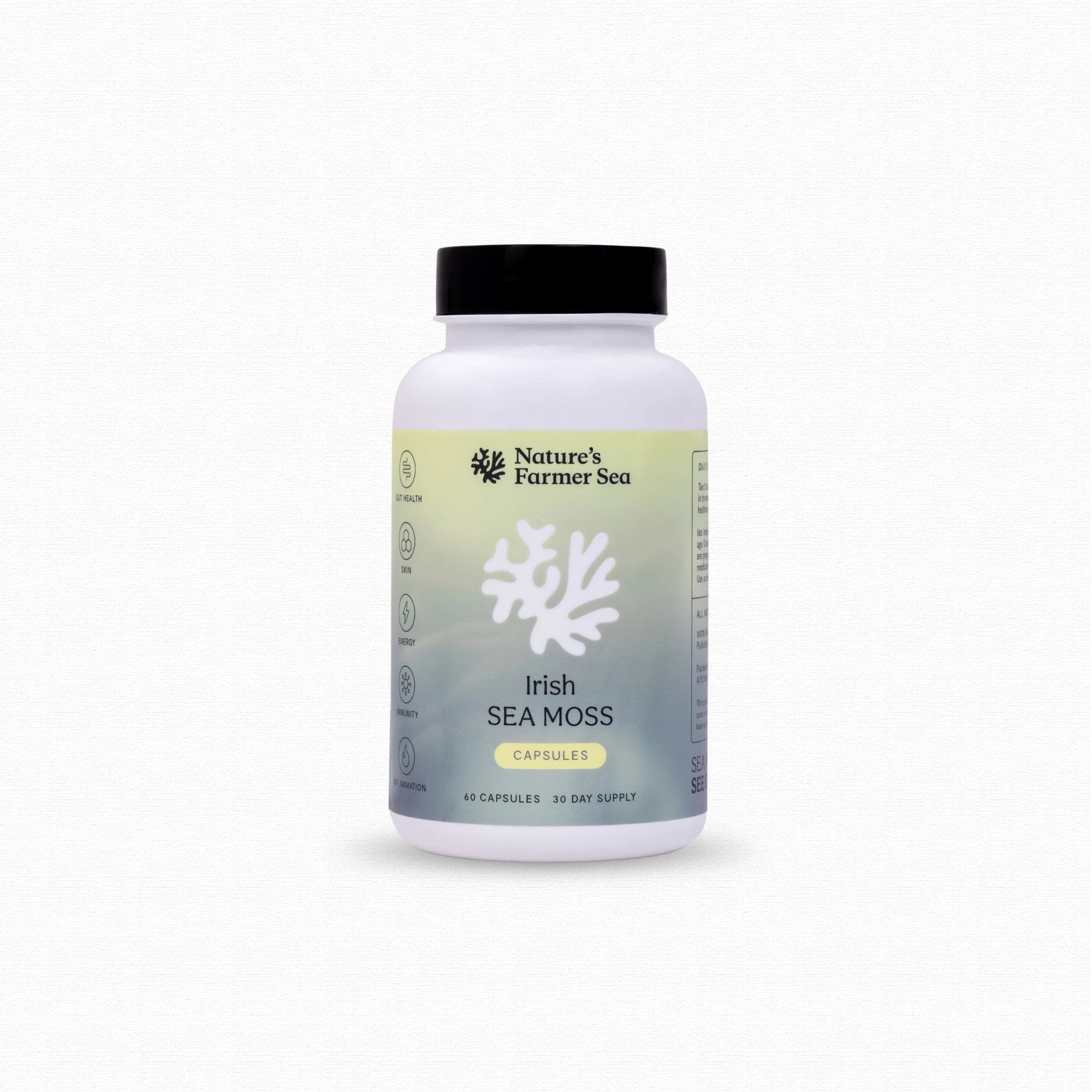Ever felt bloated before your period, constipated during pregnancy, or noticed digestion slow down during menopause? You're not imagining it - your gut and hormones are in constant dialogue.
It might surprise you, but your digestive system and hormones are more connected than you think. From PMS and fertility to menopause and mood swings, hormones not only influence your gut health - they rely on it. And your gut microbiome, in turn, plays a vital role in keeping those hormones in check.
In this blog, we’ll explore the fascinating gut-hormone connection, what this means for your overall well-being, and, most importantly, you can take simple, effective steps to support both systems naturally.
How Gut Health and Hormones Are Connected
A Two-Way Relationship
There is a bi-directional relationship between your gut microbiome and hormones, especially reproductive hormones like oestrogen and progesterone. This means:
-
Hormones influence which bacteria thrive in your gut.
-
Gut bacteria affect how hormones are metabolized and activated.
Practical Takeaway:
-
Think of your gut as a hormone filter - what you feed it influences how efficiently your body processes and balances hormones.
Hormones Shaping the Microbiome
-
Oestrogens and progesterone can act as fuel for certain gut bacteria, promoting microbial diversity.
-
High hormone levels support a more diverse gut environment, which is associated with better overall health.
Gut Bacteria Regulating Hormones
-
Gut bacteria produce enzymes (like beta-glucuronidase) that help recycle and regulate hormones, especially oestrogen.
-
A healthy microbiome helps maintain proper levels of active hormones.
-
Dysbiosis, or an imbalance in gut bacteria, can lead to poor hormone regulation.
Oestrogen and Gut Health
Oestrogen’s Impact on the Gut
Oestrogen doesn’t just impact your reproductive system, it supports digestion by:
-
Regulating gut motility (how fast or slow food moves through your system)
-
Supporting the growth of beneficial bacteria
-
Inhibiting harmful microbes that may cause disease
-
Modulating intestinal permeability and immune function
Oestrogen Fluctuations and Digestion
-
High oestrogen (e.g., during ovulation): faster digestion, possible diarrhea
-
Low oestrogen (e.g., menopause): slower digestion, potential constipation
Practical Takeaway:
-
If digestion feels off around your period or menopause, oestrogen shifts may be the cause. A diet rich in fibre and probiotics can help rebalance the gut during these times.
Oestrogen and the Microbiome
-
Oestrogen encourages diversity in gut bacteria
-
Gut bacteria help reactivate oestrogen so it can bind to receptors and function properly
-
A decline in oestrogen or microbiome diversity can lead to gut dysbiosis
Progesterone and the Gut
Progesterone’s Relaxing Effect
Progesterone relaxes smooth muscle tissue, including in the gut.
Luteal Phase and Digestion
During the second half of the menstrual cycle (luteal phase), progesterone levels rise, often leading to:
-
Sluggish digestion
-
Increased bloating or gas
Practical Takeaway:
-
During the luteal phase, stay hydrated, eat fibre-rich foods, and consider gentle movement (like walking or yoga) to keep digestion on track.
-
Consider adding Sea Moss to your diet, as it is high in fibre and minerals, supporting gut motility and digestive health, particularly when dealing with bloating and sluggish digestion.
Cortisol and Gut Health
What is Cortisol?
Cortisol is the body’s main stress hormone, released in response to physical or emotional stress.
Impact on the Gut
-
Increases gut permeability (aka "leaky gut")
-
Reduces microbial diversity
-
Encourages growth of harmful bacteria
-
Triggers inflammation in the gut and beyond
Stress and Hormone Disruption
-
Chronic stress can disrupt oestrogen and progesterone production
-
Can lead to hormonal imbalances that affect digestion and menstrual cycles
Practical Takeaway:
-
High stress? Try deep breathing, magnesium-rich foods (like leafy greens), and limit caffeine. Protecting your gut starts with calming your nervous system.
-
Sea Moss: Rich in minerals and anti-inflammatory properties, Sea Moss can support the immune system and help reduce gut inflammation caused by high cortisol levels.
Hormonal Changes Across a Woman’s Life
Menstrual Cycle
-
Oestrogen and progesterone rise and fall, influencing digestion
-
Can cause bloating, constipation, or diarrhea depending on the phase
Pregnancy
-
Slowed digestion due to hormonal shifts
-
Gut microbiome shifts to support both maternal and fetal health
Menopause
-
Drop in oestrogen levels
-
Reduced gut diversity and increased IBS-like symptoms
Oestrogen Metabolism and the Gut-Liver Axis
How Oestrogen is Metabolised
-
Oestrogen is processed in the liver, sent to the gut, and then recycled via gut bacteria
-
Gut bacteria produce enzymes that help deconjugate oestrogen so it can be reused
Dysbiosis and Oestrogen Dominance
-
Poor gut health = less oestrogen detoxing
-
Leads to oestrogen dominance - too much active oestrogen in the body
Health Risks of Oestrogen Dominance
-
PMS
-
Fibroids
-
Endometriosis
-
Higher risk of oestrogen-sensitive cancers (e.g., breast cancer)
PCOS and the Microbiome
-
Women with PCOS (polycystic ovary syndrome) tend to have less diverse gut microbiomes
-
This may contribute to inflammation, insulin resistance, and higher androgen levels
Practical Takeaway:
-
If you have PCOS, nourishing your gut with prebiotic-rich foods (such as Sea Moss), and probiotics (such as kefir) may help manage symptoms.
The Role of Short-Chain Fatty Acids (SCFAs)
What Are SCFAs?
SCFAs like butyrate, acetate, and propionate are produced when gut bacteria ferment prebiotic fibre.
Benefits of SCFAs
-
Lower inflammation
-
Balance blood sugar and hormones
-
Improve oestrogen metabolism
Sea Moss: Being a prebiotic, Sea Moss aids in SCFA production, which helps balance blood sugar and hormones, and reduces inflammation.
Gut Health Strategies for Hormonal Balance
1. Eat 30+ Different Plant Foods Weekly
-
Boosts gut diversity
-
Includes fruits, vegetables, legumes, grains, nuts, seeds, herbs, and spices
-
Especially important during peri- and post-menopause
2. Include Prebiotics
-
Feed good gut bacteria
-
Help increase SCFA production
-
Found in foods such as:
-
Legumes
-
Onions and garlic
-
Whole grains
-
Cashews and pistachios
-
Sea Moss
3. Add Probiotic Foods
-
Must contain live cultures with proven health benefits
-
Top sources:
-
Kefir
-
Kimchi
-
Sourdough bread
4. Prioritise Omega-3 Fatty Acids
-
Reduces inflammation
-
Supports SCFA production
-
Sources:
-
Salmon and other oily fish (2-3x per week)
-
Omega-3 supplements
5. Get Enough Vitamin D
-
Supports both gut and hormone health
-
Found in:
-
Fatty fish
-
Eggs and dairy
-
Fortified foods
-
Mushrooms (exposed to sunlight)
-
Sunshine (best source!)
6. Manage Stress
-
Practice stress-reduction techniques:
-
Meditation
-
Yoga
-
Deep breathing
-
Reduces cortisol and supports gut integrity
FAQs: Gut Health & Hormones
How does gut health affect hormones?
Your gut microbiome helps regulate hormone metabolism, especially oestrogen. A healthy gut supports hormone balance, while dysbiosis can lead to imbalances.
Can hormone fluctuations affect digestion?
Yes. Oestrogen and progesterone influence gut motility, which can lead to constipation, diarrhea, or bloating during hormonal shifts like menstruation or menopause.
What foods are best for gut and hormone health?
Focus on plant diversity, prebiotics (e.g., legumes, onions, garlic, Sea Moss), probiotics (e.g., kefir), omega-3s (e.g., oily fish), and adequate vitamin D.
What is oestrogen dominance?
A condition where there's too much active oestrogen in the body. It can result from poor oestrogen metabolism, often due to gut dysbiosis.
How does stress impact gut and hormone health?
Chronic stress increases cortisol, which harms the gut barrier, reduces microbial diversity, and disrupts hormone signaling.
Final Thoughts
Your gut is far more than just a digestive powerhouse! It is intricately connected to every aspect of your health, including your hormones. By nourishing your gut microbiome, you’re directly influencing your body’s ability to balance hormones like oestrogen and progesterone.
By understanding how your gut and hormones communicate, you can take control of your health, addressing symptoms like bloating, fatigue, and hormonal imbalances more effectively. Whether you’re experiencing PMS, pregnancy-related changes, or the transition through menopause, supporting your gut health is one of the most powerful tools you have to regain balance.
The journey to hormonal wellness starts in your gut. So, make it a priority to feed it with the nutrients, love, and care it deserves. When your gut thrives, so do you!





